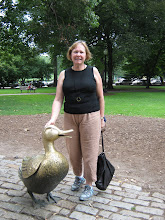Goal 17 Strengthen the means of implementation and revitalise the global partnership for sustainable development.
The SDGs can only be realised with strong global partnerships and cooperation.
A successful development agenda requires inclusive partnerships — at the global, regional, national and local levels — built upon principles and values, and upon a shared vision and shared goals placing people and the planet at the centre.
Select books to read here.
All children have the right to learn about the world, to celebrate the water, air and sunshine, and to be curious about the animals and plants that live on our planet. All children also have the right to learn about endangered species, to be concerned about plastic in the ocean, and to understand what a changing climate means for our Earth.
Scientists tell us that every living thing is connected. When we cut down forests, we destroy animal habitats. When we throw plastic in the garbage, it never really goes away. When we spray pesticides on our fruit and vegetables, we poison the earth, animals and ourselves.
What can children do to help? All children can draw posters of endangered animals to raise awareness. All children can send a letter to the leader of their country, signed by every member of their family. All children can protest along with their parents. Children have the right to do all these things as proclaimed in the United Nations Convention on the Rights of the Child. All children have the right to try to help our Earth, in whatever ways they can.
This is an expensive book to buy, but it is read on epic! You could link it to David Attenborough's film clip How to Save Our Planet if you haven't already shown it earlier in your Book Club sessions.• We read...
Congratulations you have read 17 books and you now are very aware of the United Nations 17 Goals for Sustainable Development. You are well informed to think about the future of the world!
Before I read all of these books, I thought...
but now I think...







No comments:
Post a Comment